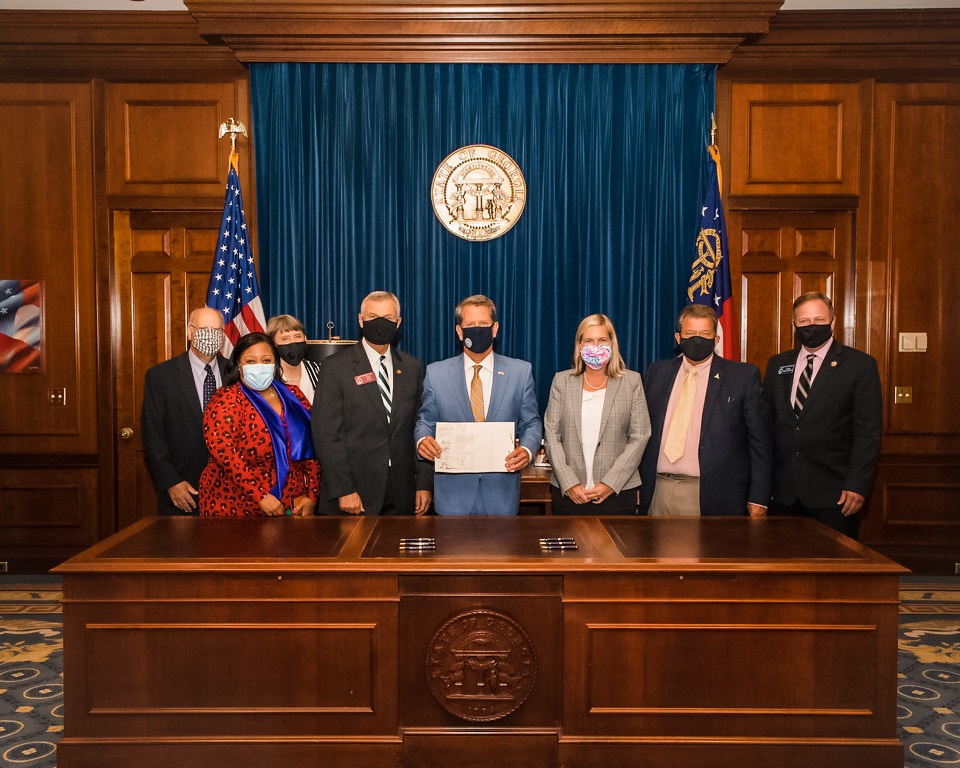Georgia Legislature Improves PA Practice—Provides PA and APRN Parity
New Law Increases PA to Physician Ratio to 4:1, Matching APRN Ratio
September 14, 2020

Recently, Georgia Gov. Brian P. Kemp signed SB 321 into law. The legislation is the product of a 2019 law which created a study committee tasked with evaluating and simplifying physician oversight of PAs and APRNs.
The new law, which becomes effective on Jan. 1, 2021, increases the PA to physician ratio to 4:1, matching the existing APRN ratio. The new law also achieves one of AAPA’s Six Key Elements of a Modern PA Practice Act, bringing Georgia’s total to three, by allowing chart review to be determined at the practice level. In addition, the enactment of SB 321 removes archaic language that stated PAs were “licensed to” physicians and “only authorized to practice in those public or private places or facilities where the supervising (or alternate) physician regularly sees patients.” Lastly, it struck outdated language that required PAs to notify patients of their right to see the physician prior to the PA issuing any prescription drug or device order.
[Stay up to date on legislative information that impacts you – join or renew today]
“Despite COVID-19 altering the 2020 legislative session, SB 321 was a win for PAs in Georgia. Securing a Six Key Element, parity with our nursing colleagues regarding ratios and the removal of outmoded language are important improvements to the Georgia PA regulatory environment. We are already planning for the 2021 legislative session. During the pandemic, we have seen how vital PAs are to the healthcare system and will continue to advocate for practicing at the top of our level of training,” said Amy Reeves, PA-C, Legislative Chair, Georgia Association of PAs (GAPA).
AAPA provided GAPA with document and language review and state law summary information to aid the study committee in its assessment. AAPA staff also drafted and submitted a letter in support of the legislation to the governor.
For responses to questions about SB 321 or PA practice in Georgia, contact Stephanie Radix, AAPA senior director, state advocacy and outreach.
More Resources
Advocacy Resources
Interactive Map: Suspended or Waived Practice Requirements for PAs
Thank you for reading AAPA’s News Central
You have 2 articles left this month. Create a free account to read more stories, or become a member for more access to exclusive benefits! Already have an account? Log in.



